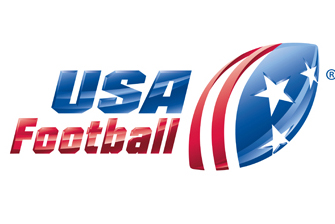As football practices continue through the dry, hot month of August, coaches across the nation were reminded of the dangers of asthma following the tragic death of a young player.
Elbert Jovante Woods, the son of former Cincinnati Bengals running back Ickey Woods, died Aug. 14, three days after suffering an asthma attack.
The 16-year-old, who would have started as a cornerback this season at Cincinnati Princeton High School, was practicing with his varsity football team last week, when he collapsed later that day at home and was taken to a local hospital, school officials told WLWT.com in Cincinnati.
Extreme heat and poor air quality likely worsened the teen's condition, doctors told the station.
Nearly 6.7 million children under the age of 18 suffer from asthma, but in only the rarest cases is it something that hinders a youth football player's experience.
The Winning With Asthma Clipboard Program is designed to help coaches learn about asthma, how it affects an athlete's ability to compete and how coaches can help their athletes manage their symptoms while performing at their best.
Asthma causes repeated episodes of wheezing, breathlessness, chest tightness and nighttime or early morning coughing. Asthma is not curable but attacks should only occur when a "trigger" bothers the lungs.
"It is important that coaches and parents understand that through education and awareness we can change howpeople live with asthma," said Chris Draft, national spokesman for Winning with Asthma and a Washington Redskins linebacker. "We work to inspire and educate people about asthma through the efforts my foundation's asthma team.
"My heart and prayers go out to Ickey Woods and his entire family after their recent loss."
Coaches should know which of their players have asthma and be prepared. In the event that the asthma attack appears to be severe, it's better to be safe than sorry.
"If it's a severe attack -- if the athlete's lips or nails are blue or has difficulty talking, walking or drinking liquids- - that's an indication to call 9-1-1 right away," Dr. David Callahan of the U.S. Public Health Service told USA Football in 2009. "The other very good reason to call 9-1-1 is if the coach or child is simply unsure what to do. It's never wrong to call, and minutes do count when things get severe."
Callahan also encourages youth football coaches to look at the "Winning with Asthma" program online to learn more about how to help improve the experience for youth athletes.
"Our expectation for asthma is that youth athletes should be able to take part in activities without feeling restricted," Callahan said. "They should be as much a member -- and as good a member -- of the team as children without asthma."


